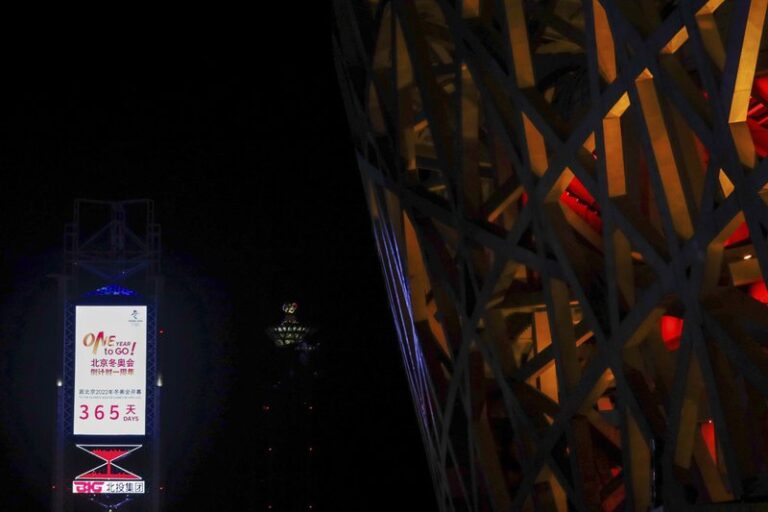
(AP)—Building elaborate venues for Beijing’s 2022 Winter Olympics is the easy part for China, just as it was for the city’s Summer Olympics in 2008. The competition venues are ready, and non-competition sites will be completed this summer with the Games set to open one year from Thursday on Feb. 4, 2022.
But these Olympics are already scarred by accusations of rights abuses including genocide against more than 1 million Uighurs and other predominantly Muslim ethnic groups in the western Xinjiang region. And unlike 2008, a new generation of Olympic athletes is speaking out on social issues and discrimination and challenging IOC rules against using the Olympics as a stage.
Hanging over all of this is the COVID-19 pandemic that has already delays and still threatens the Tokyo Summer Olympics in six months.
China says its ability to control the virus through lockdowns, quarantines, contact tracing and mask wearing should alleviate any concerns. The Winter Olympics are also much smaller than the Summer Games with about 3,000 athletes instead of 11,000.
“We are full of confidence to hold an excellent and outstanding Winter Olympics,” Chinese Foreign Ministry spokesperson Wang Wenbin said this week.
While a full-blown boycott seems unlikely, athletes and the IOC’s 14 leading sponsors are a possible target. Household names such as Coca-Cola, Airbnb, Procter & Gamble, Samsung, Panasonic, Visa, Toyota and others together pay the IOC a total of $1 billion over a four-year Olympic cycle.
British Foreign Secretary Dominic Raab has said a boycott by his country is a possibility, and new U.S. Secretary of State Antony Blinken has said he believes genocide was being committed in China.
Chinese President Xi Jinping “will not be deterred by threats of a boycott,” Steve Tsang, director of the SOAS China Institute at the University of London, said in an email. “Instead, Xi’s government will make threats to ruin the economic future of any sportsperson who may be involved in a boycott and try to deter anyone from doing so.”
The World Uyghur Congress has labeled them the “Genocide Games” and asked the IOC to move the Olympics from China. A coalition of 180 rights groups sent an open letter on the eve of the one-year-to-go date calling for a diplomatic boycott. The coalition is composed of groups representing Tibetans, Uighurs, Inner Mongolians, Hong Kong residents and others.






